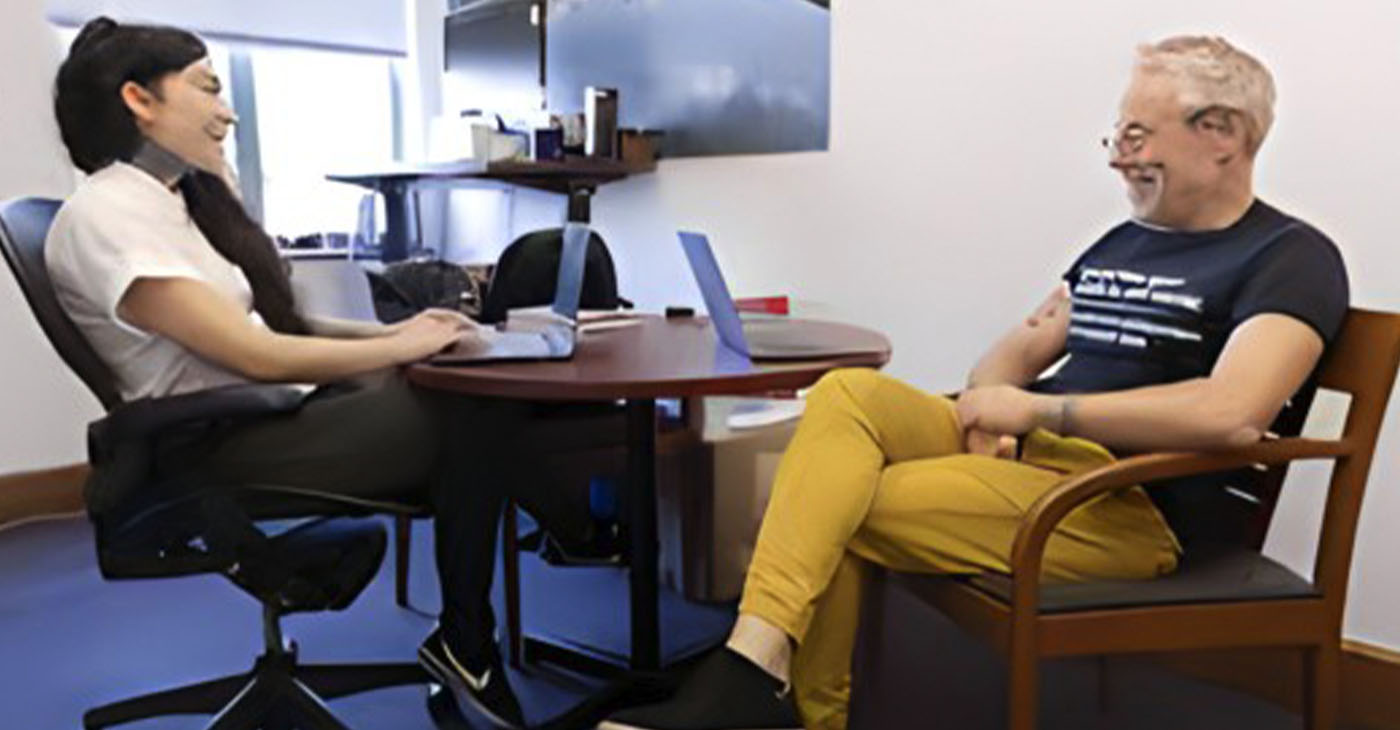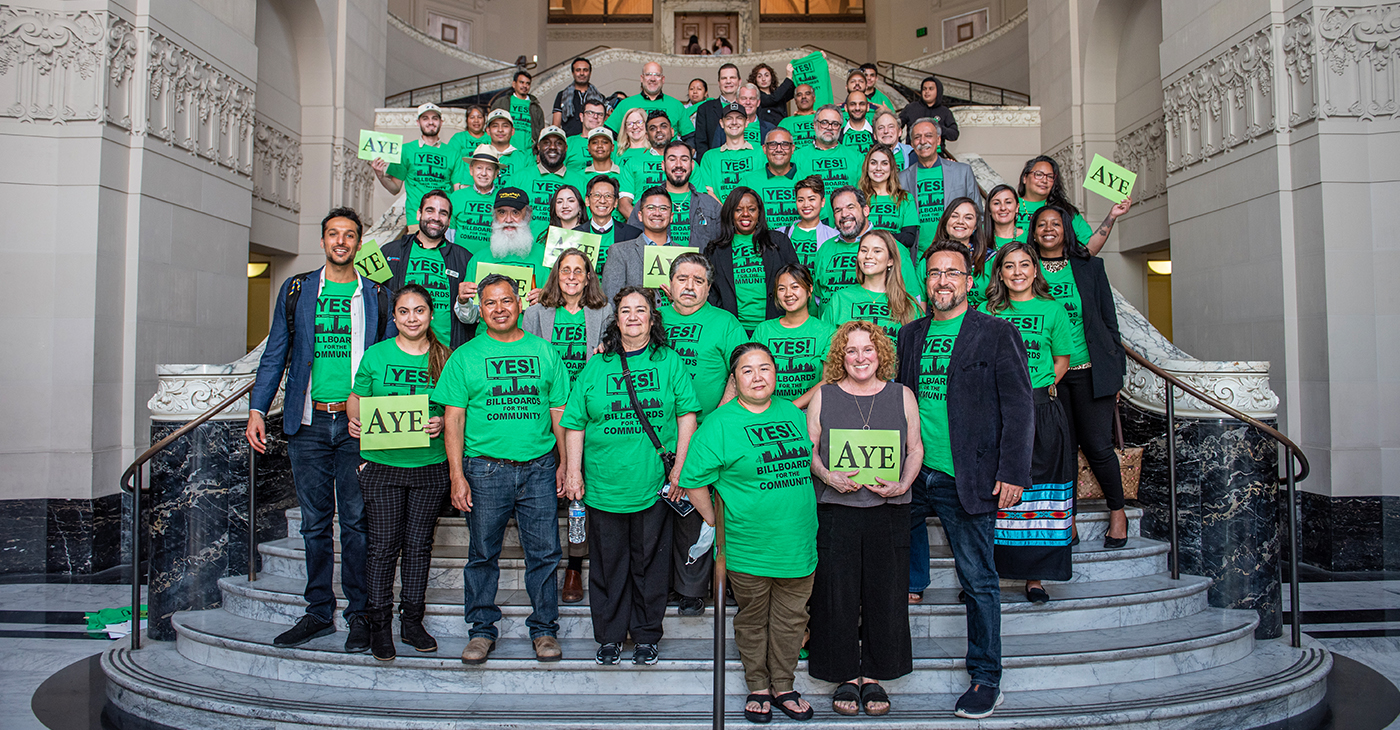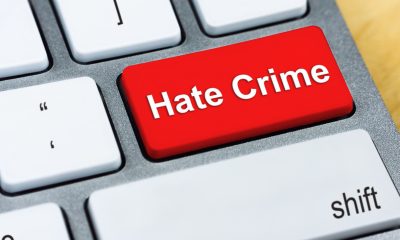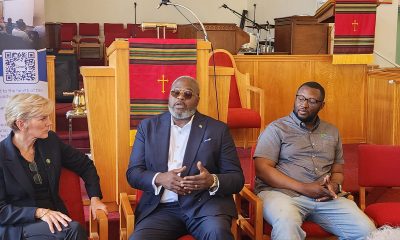Activism
‘Empathy and Curiosity:’ How queen jaks is Helping Haas Make Teaching More Inclusive
Over the past year, queen has been helping Haas faculty navigate the minefield of changing mores and heightened awareness around a range of topics often referred to as diversity, equity, inclusion, justice, and belonging (DEIJB).

By Laura Counts
UC Berkeley News
When Dr. queen jaks walks into a Berkeley Haas classroom and sits in the back scribbling notes, students wonder what’s going on.
“They think the professor is in trouble and I’m there to get the dirt,” says queen, who writes her name with lowercase letters.
But as the school’s first diversity instructional support consultant, queen is not an enforcer. She’s there as an invited guest of faculty members who want help in making their teaching more inclusive.
“It’s so important to make it clear that I’m not there to tell people they’re doing something wrong. I’m not there to hear both sides,” she says. “I’m there because the instructor wants support.”
Unique role
Over the past year, queen has been helping Haas faculty navigate the minefield of changing mores and heightened awareness around a range of topics often referred to as diversity, equity, inclusion, justice, and belonging (DEIJB). Her role is unique: Rather being called in to mediate when things heat up, she coaches instructors individually—by observing classes, offering suggestions on course content, or consulting on issues that come up in class. She also teaches best practices through brief workshops and exercises.
Holding both an MBA and a PhD in organizational behavior, queen is fluent in the language of academia, while also drawing on her own experiences of feeling like an outsider who broke into that world as a first-generation student from an impoverished community. She grew up in San Diego and earned a BS in business administration from UC Riverside, going on for her MBA from the University of Redlands and her doctorate from Case Western Reserve University.
She approaches the job with empathy, curiosity, and a natural sense of humor.
“We’re all learning, we’re all going to make mistakes, and that’s okay,” says queen, whose own research focuses on the contributions of marginalized communities. “Society is evolving, and people want change really badly, so everything that comes out of your mouth in the classroom is going to be scrutinized. I’m here to say ‘I feel you. Now let’s turn it around and see how that might be perceived.’”
Haas Chief DEI Officer Élida Bautista dreamed up the new role in response to growing demand from students for more diversity in course content and on the faculty. In addition to the work Haas is doing to hire more diverse faculty members and an effort led by the Center for Equity, Gender and Leadership to compile a library of business cases featuring diverse protagonists, Bautista wanted to find a way to directly support current faculty. Dean Ann Harrison greenlighted the pilot position.
“When I looked around for consultants and talked to my counterparts at other business schools and universities, no one was doing this—so we didn’t really have a model,” Bautista says. As a clinical psychologist, she designed the role so that all services would be confidential and voluntary.
“Anytime you force people to do something, there’s an inherent resistance and that decreases the efficacy,” she said. “Some people think that when you make something voluntary, you end up preaching to the choir. But even the choir needs tuning: People who are bought into these ideas still need skills to carry them out, and they’ll end up bringing others along.”
Sensitive content
That’s what has happened. Associate Professor Juliana Schroeder—who championed the new role along with associate deans Jennifer Chatman and Don Moore and served on the hiring committee—offered to be a guinea pig for queen to observe her leadership class.
Schroeder is a social psychologist who has thought carefully about diversity and psychological safety in her teaching and materials. Still, on the day of the observation, when she was referencing the 1986 Challenger Space Shuttle explosion to shed light on decision-making pitfalls for a case study about car racing, a student had a “PTSD-like” incident in her classroom.
“He was an Army veteran, and this was directly relevant to his experience,” Schroeder says. “I was so glad queen was there that day, and I was blown away by how great her feedback was. It really illustrated what a benefit it was to have someone well-trained in these topics right there in my classroom.”
After the session, queen gave Schroeder a detailed report with suggestions on adjusting her script and offering both a written and verbal alert for sensitive topics. It also included a list of things she was doing well, and some practices to add—such as repeating back answers that were lower in volume, acknowledging students who were waiting to speak, and using contrasting colors on slides—as well as including photos in her slides that would show diversity beyond race and gender.
Word of mouth
Schroeder thought it was so helpful she asked to share it with other faculty members, and soon queen had a full calendar.
“Every single person I’ve worked with has been so receptive,” queen says. “I’ve spent a lot of time at business schools, and it’s been jaw-dropping how much Haas has embraced this.”
Associate Professor Mathijs De Vaan invited her to sit in on a session focused on DEIJB in his MBA course Leading People. De Vaan, who grew up in The Netherlands, is mindful that his class includes international students who may be new to American culture, as well as students with backgrounds that have been marginalized in the U.S.
“It’s a challenge. There’s always a group of students who are very knowledgeable and very vocal, and others who know these are sensitive subjects and are afraid to speak at all,” says De Vaan. “I wanted students to be on the same page in understanding the scope of the problem that racism and discrimination represent in the U.S., so I gave them a number of examples of where companies fell short.”
That’s important, queen told him, but it can also be stressful for some students. “For minority students in the room, it might reinforce the idea that their group is marginalized,” he says. To address this, in the next iteration of the class he focused less on examples of problematic situations, and more on possible solutions to societal challenges.
Activism
Oakland Post: Week of July 24 – 30, 2024
The printed Weekly Edition of the Oakland Post: Week of July 24 – 30, 2024

To enlarge your view of this issue, use the slider, magnifying glass icon or full page icon in the lower right corner of the browser window. ![]()
Activism
Oakland Post: Week of July 17 -23, 2024
The printed Weekly Edition of the Oakland Post: Week of July 17 -23, 2024

To enlarge your view of this issue, use the slider, magnifying glass icon or full page icon in the lower right corner of the browser window. ![]()
Activism
Community Celebrates Historic Oakland Billboard Agreements
We, the Oakland Billboard Economic Development Coalition, which includes Oakland’s six leading community health clinics, all ethnic chambers of commerce, and top community-based economic development organizations – celebrate the historic billboard agreements approved last year by the Oakland City Council. We have fought for this opportunity against the billboard monopoly, against Clear Channel, for five years. The agreements approved by Council set the bar for community benefits – nearly $70 Million over their lifetime, more than 23 times the total paid by all previous Clear Channel relocation agreements in Oakland combined.

Grand Jury Report Incorrect – Council & Community Benefit
We, the Oakland Billboard Economic Development Coalition, which includes Oakland’s six leading community health clinics, all ethnic chambers of commerce, and top community-based economic development organizations – celebrate the historic billboard agreements approved last year by the Oakland City Council. We have fought for this opportunity against the billboard monopoly, against Clear Channel, for five years. The agreements approved by Council set the bar for community benefits – nearly $70 Million over their lifetime, more than 23 times the total paid by all previous Clear Channel relocation agreements in Oakland combined.
Unfortunately, a recent flawed Grand Jury report got it wrong, so we feel compelled to correct the record:
- Regarding the claim that the decision was made hastily, the report itself belies that claim. The process was five years in the making, with two and a half years from the first City Council hearing to the final vote. Along the way, as the report describes, there were multiple Planning Commission hearings, public stakeholder outreach meetings, a Council Committee meeting, and then a vote by the full Council. Not only was this not hasty, it had far more scrutiny than any of the previous relocation agreements approved by the City with Clear Channel, all of which provide 1/23 of the benefits of the Becker/OFI agreements approved by the Council.
- More importantly, the agreements will actually bring millions to the City and community, nearly $70M to be exact, 23 times the previous Clear Channel relocation agreements combined. They certainly will not cost the city money, especially since nothing would have been on the table at all if our Coalition had not been fighting for it. Right before the decisive City Council Committee hearing, in the final weeks before the full Council vote, there was a hastily submitted last-minute “proposal” by Clear Channel that was debunked as based on non-legal and non-economically viable sites, and relying entirely on the endorsement of a consultant that boasts Clear Channel as their biggest client and whose decisions map to Clear Channel’s monopolistic interests all over the country. Some City staff believed these unrealistic numbers based on false premises, and, since they only interviewed City staff, the Grand Jury report reiterated this misinformation, but it was just part of Clear Channel’s tried and true monopolistic practices of seeking to derail agreements that actually set the new standard for billboard community benefits. Furthermore, our proposals are not mutually exclusive – if Clear Channel’s proposal was real, why had they not brought it forward previously? Why have they not brought it forward since? Because it was not a real proposal – it was nothing but smoke and mirrors, as the Clear Channel’s former Vice President stated publicly at Council.
Speaking on behalf of the community health clinics that are the primary beneficiaries of the billboard funding, La Clinica de la Raza CEO Jane Garcia, states: “In this case, the City Council did the right thing – listening to the community that fought for five years to create this opportunity that is offering the City and community more than twenty times what previous billboard relocation agreements have offered.”
Oakland Billboard Economic Development Coalition
| Native American Health Center | La Clínica de la Raza | West Oakland Health Center |
| Asian Health Services | Oakland LGBTQ Center | Roots Community Health Center |
| The Unity Council | Black Cultural Zone | Visit Oakland |
| Oakland African American Chamber of Commerce | Oakland Chinatown Chamber of Commerce | Oakland Vietnamese Chamber of Commerce |
| Oakland Latino Chamber of Commerce | Building Trades of Alameda County | (partial list) |
-

 Arts and Culture3 weeks ago
Arts and Culture3 weeks agoRooted in Tradition: The Intricate History of Black Hair Braiding
-

 Bay Area4 weeks ago
Bay Area4 weeks ago“I Will Not Be Bullied,” Says Oakland Mayor Sheng Thao
-

 Bay Area2 weeks ago
Bay Area2 weeks agoPG&E Increases Rates While Bay Area Households Are Struggling to Stay Afloat
-

 Business3 weeks ago
Business3 weeks agoGov Newsom: Raising Fast Food Minimum Wage to $20 Pays Off as Jobs Multiply in Industry
-

 Activism4 weeks ago
Activism4 weeks agoOpponents of Mayor Sheng Thao Are Calling on Her to Resign Following FBI Raid
-

 Bay Area2 weeks ago
Bay Area2 weeks agoJuneteenth Mass Shooting Suspect Charge with Multiple Counts of Felony Assault by Alameda County DA Pamela Price
-

 Community1 week ago
Community1 week agoHundreds Come to Jehovah’s Witnesses’ Assembly Hall for Three-Day Program of ‘Good News’ in Fremont
-

 Activism4 weeks ago
Activism4 weeks agoOakland Coliseum Sale to AASEG: A Model for Community Development and Inclusion



















































